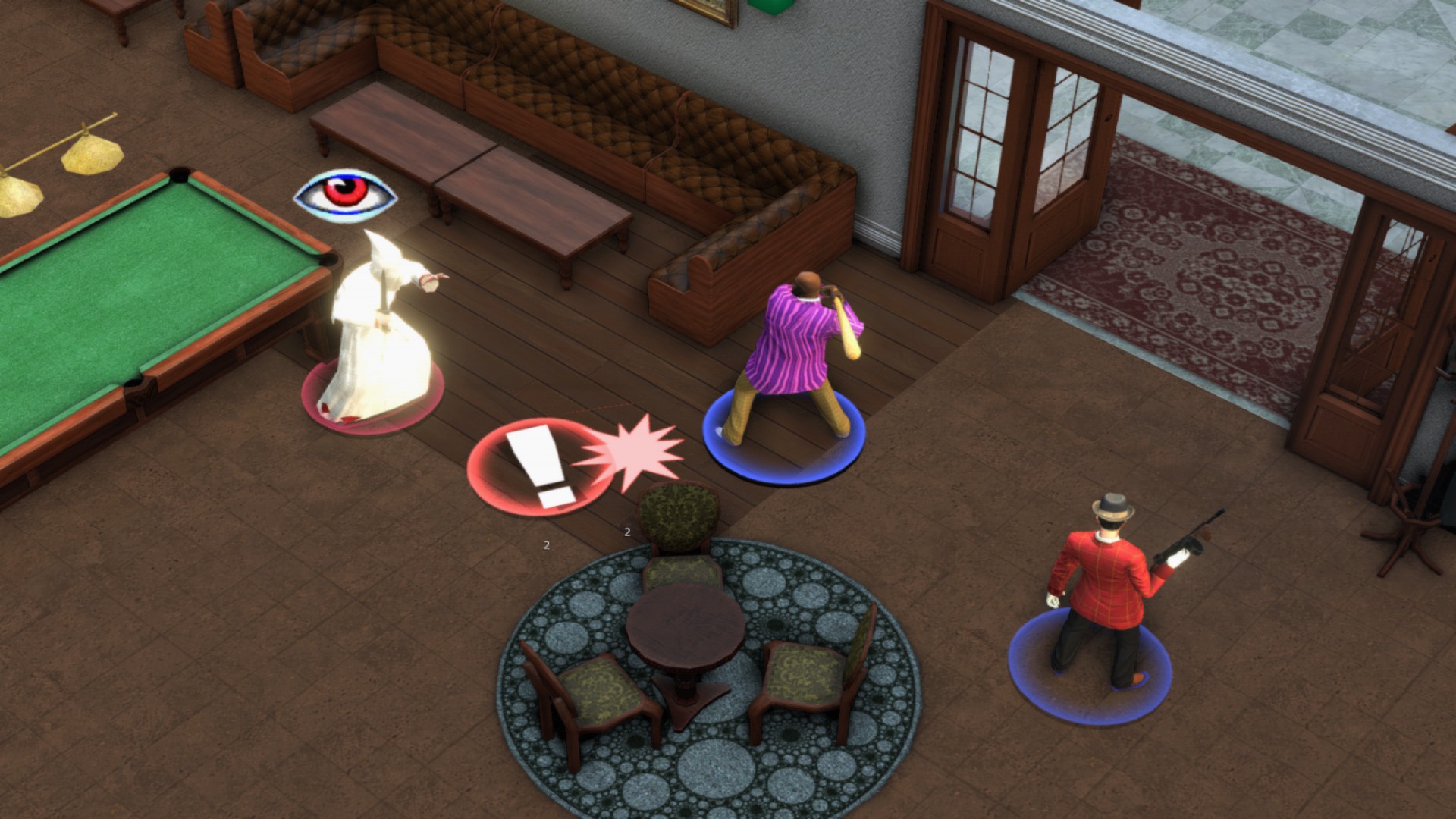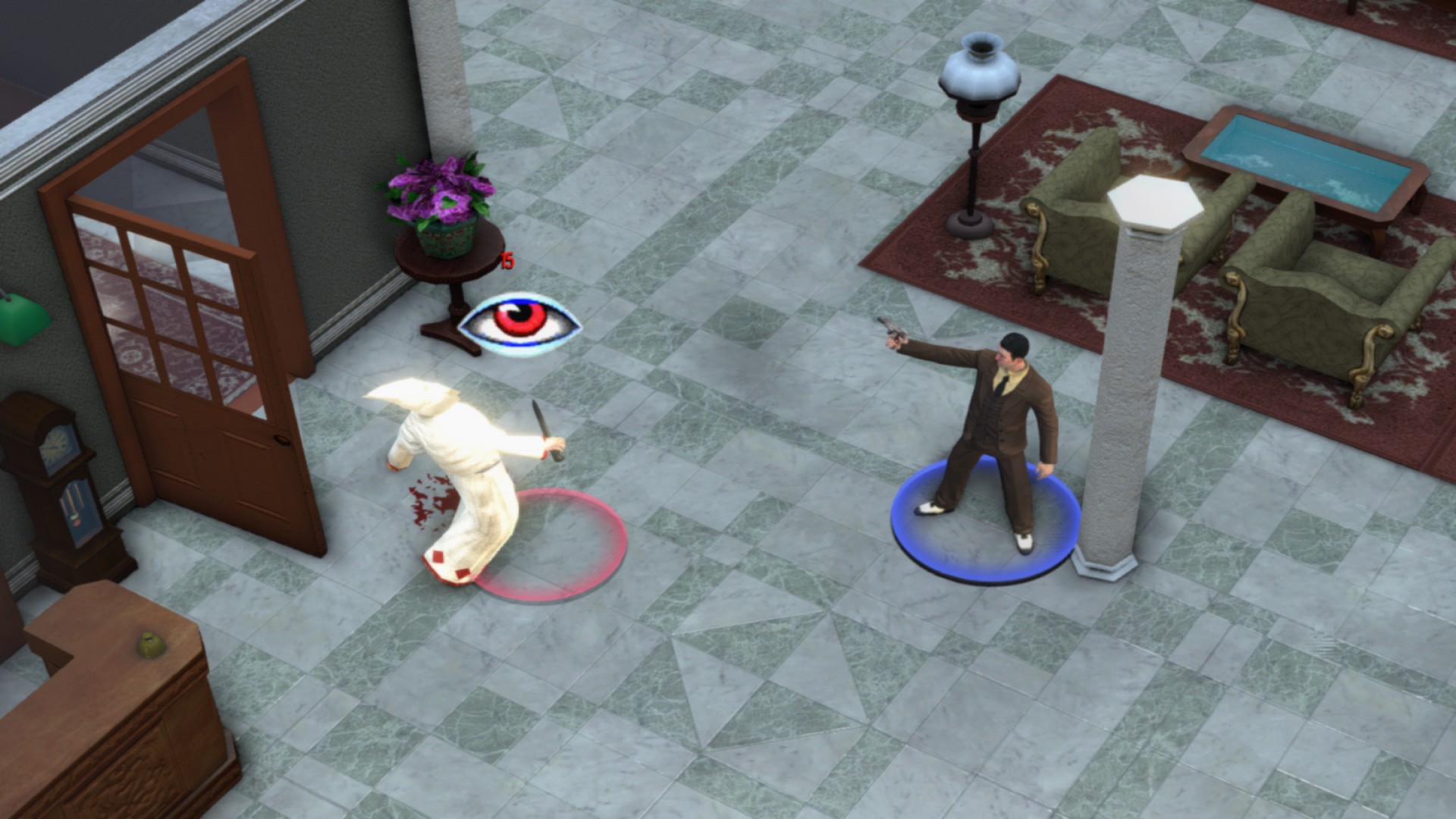Quick Search
Navigation
Featured Articles
- The Monsters of the Wailing Prison
- Strider Review
- BioShock Dev Irrational Fires All But 15 Employees
- New Titanfall Maps Confirmed
- There Are Aliens In Titanfall
- Guide: How to Dominate The Elder Scrolls Online PvP
- The Elder Scrolls Online PvP Experience
- Get Glow-in-the-Dark Condoms For Pre-Ordering InFamous: Second Son
- Batman: Arkham Origins Devs Have No Intention To Fix Bugs - Working On DLC Instead
- 8 Exclusive ESO Screenshots
Omerta: City Of Gangsters Review
- 2-4-2013
- Categorized in: Reviews, Video Game News

The idea of a mob sim in which players control all aspects of an underground empire in its rise to prominence is one that speaks to just about everything I'm interested in. I love the gritty mob embellishments of the 1940s about as much as I enjoy micromanaging empires and conquering enemy territories, which is to say, I like it all a whole lot. So imagine my surprise when I found myself altogether disinterested in Omerta: City of Gangsters, a game which combines one of my all-time favorite genres with one of this country's most fascinating eras to strangely dull results.

Omerta tries to split the difference between empire management games like Tropico and tactical combat titles like XCOM. And while the game's publicists at Kalypso have been doing their darndest to drive that XCOM comparison home, this release ultimately lacks the depth of either of its inspirations.
The issues begin early for Omerta. As soon as you start up a game, you're faced with a series of character customization options. In addition to choosing how your in-game avatar looks, you'll have to choose from a series of personality traits such as Cunning and Guts with which to boost yourself. While it's not hard to figure out that a little extra Cunning might let you grease some hands a little easier, it's never specified what any of the traits you're investing in actually do, and some of the more obscure stats, like Guts, aren't so easy to figure out. You'll end up scrutinizing certain gameplay situations wondering whether or not your chosen stats are affecting them towards one outcome or another. Other times, the game will flat out tell you when your stats influence the game, but this is only after you've committed.
In game, there's not much to do aside from buying and selling illegal goods to and from other gangs. This is an especially prominent part of the early game, when you'll be doing nothing but purchasing and peddling illegal alcohol. It's an incredibly slow start to the game, and it makes the world feel empty and lifeless when all you can do to interact with it is make some booze change hands. You'll have the option of either buying beer from manufacturers or raiding their warehouses to take it, the latter of which will lower your reputation with that manufacturer. But I always spent so little time in each section of the city and there were so many manufacturers on hand that my reputation with a given manufacturer didn't really matter. There was no compelling reason to not run in guns blazing.
Later in the game, more strategic options will begin to open up as the world map reveals itself. Different cities will offer differing layouts, benefits and drawbacks. Some will have heavy police presence, and that must be accounted for when doing your deals. It can be easy to run afowl of the cops, and when you do you may have a fight on your hands. It can be a tricky balancing act to maintain a thriving business without drawing too much attention to yourself, and it can become compelling to try to keep both sides happy when the game starts putting pressure on you. It's just too bad this doesn't happen until the late game.

The other half of the title is its tactical, turn-based combat. This half of the game should have been the more exhilerating of the two, but ends up largely falling flat due to a combination of presentation issues and a lack of customization. Viewing battle from a top-down perspective is fine, and controlling the action works well enough with the mouse. But after the cinematic close-ups and chase cams of XCOM: Enemy Unknown, the sterile battle of Omerta feels a little lifeless.
Worse is the game's cover system, which wouldn't always register when my mafioso were behind viable cover. Characters are supposed to snap to objects that they can use for protection, like crates and walls. But around a third of the time, they would just stand behind the object as if eager to absorb as many bullets as possible. Since cover can be vital to avoiding shots and muscling through those you can't avoid, this naturally caused a few problems for my little syndicate.
There's also a real lack of customization when it comes to player skills. Mafioso start out with a set of skills, but the game doesn't bother to explain what they do or in which situations they might be useful, leaving it to you to read about them in combat. It would have been more exciting to introduce the skills as they became necessary. Missing are any in-depth skill trees or character class upgrades, meaning that the combat will already feel stale by the time you really start seeing more of it. After a while, fighting becomes a chore.

And that kind of describes Omerta: City of Gangsters in a nutshell. It's an overall boring game, one which I continued to play out of obligation borne from my love of the genre and the time period. The world feels too empty, the battle too toothless and wonky for the game to live up to the gritty potential of its setting. And a mafia story removed of its power struggles and grit is, as it turns out, a pretty dull story.
Score: 5.5/10




